
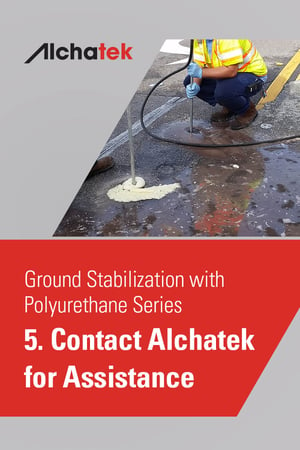 Each ground stabilization project is unique. The Alchatek support team is skilled in assessing different challenges and devising solutions tailored to specific requirements, whether for residential, commercial, or industrial purposes.
Each ground stabilization project is unique. The Alchatek support team is skilled in assessing different challenges and devising solutions tailored to specific requirements, whether for residential, commercial, or industrial purposes.
Technical Guidance for Ground Stabilization
Alchatek extends its support to those seeking ground stabilization solutions, offering comprehensive technical guidance. More than just a manufacturer, Alchatek partners with property owners and contractors alike throughout their construction endeavors, ensuring effective implementation of stabilization techniques.
Connecting with Skilled Contractors
Alchatek also facilitates connections with experienced contractors proficient in advanced ground stabilization methods. This service ensures that property owners and managers have access to the necessary expertise for their specific stabilization needs.
Why Choose Alchatek?
Alchatek's approach to ground stabilization is rooted in a deep understanding of geotechnical engineering and a commitment to manufacturing high-quality materials. This ensures not only the effectiveness of our products but also their longevity and environmental friendliness.
Get in Touch
To take the first step towards a successful ground stabilization project. Our team is ready to assist you with expert advice, detailed information, and referrals to qualified contractors. Trust Alchatek to be your partner in ensuring the stability and integrity of your structures.
Call 404-618-0436 or fill out this form to contact Alchatek today!



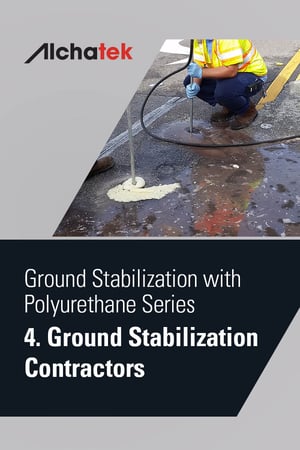 Choosing the right contractor for ground stabilization using polyurethane is a critical decision that directly impacts the success and longevity of your project. This guide provides essential tips to help you select the most qualified professional for your needs.
Choosing the right contractor for ground stabilization using polyurethane is a critical decision that directly impacts the success and longevity of your project. This guide provides essential tips to help you select the most qualified professional for your needs.
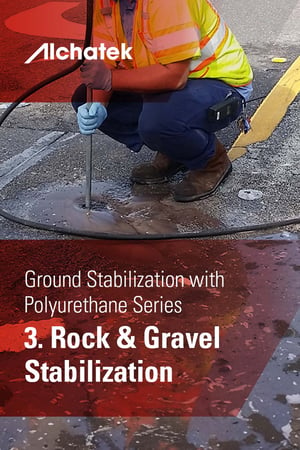 Ground stabilization extends beyond soil to include rock and gravel, crucial for various construction and infrastructure projects. Polyurethane foam, with its expansive and adhesive properties, is an extremely effective solution in these challenging environments.
Ground stabilization extends beyond soil to include rock and gravel, crucial for various construction and infrastructure projects. Polyurethane foam, with its expansive and adhesive properties, is an extremely effective solution in these challenging environments.
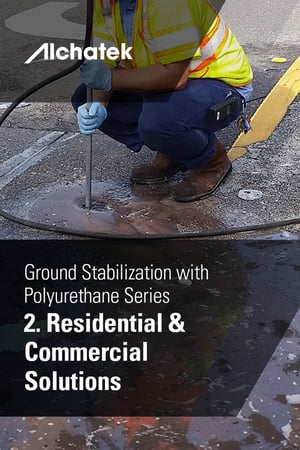 Polyurethane ground stabilization is a proven solution that has been successfully applied in countless real-world scenarios. From fixing residential driveways to supporting the foundations of commercial and municipal buildings, polyurethane foam offers a versatile and dependable approach to ground stabilization.
Polyurethane ground stabilization is a proven solution that has been successfully applied in countless real-world scenarios. From fixing residential driveways to supporting the foundations of commercial and municipal buildings, polyurethane foam offers a versatile and dependable approach to ground stabilization.
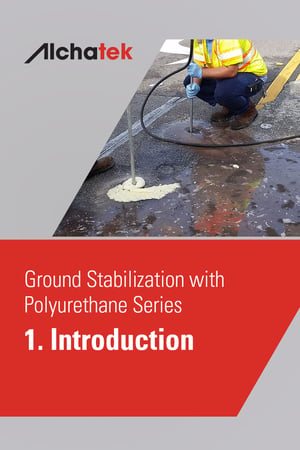 In the world of construction and infrastructure development, the quest for stability is paramount. Whether you're a property owner, manager, or builder, ensuring that the ground beneath your structures is solid and dependable is crucial.
In the world of construction and infrastructure development, the quest for stability is paramount. Whether you're a property owner, manager, or builder, ensuring that the ground beneath your structures is solid and dependable is crucial. 
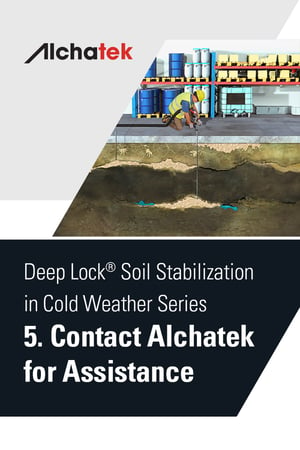 If you're a contractor grappling with deep soil stabilization challenges or looking to expand service offerings, Alchatek offers comprehensive support and training to elevate skills and expand business opportunities. Here's how the Alchatek team can assist you in enhancing your Deep Lock® soil stabilization capabilities:
If you're a contractor grappling with deep soil stabilization challenges or looking to expand service offerings, Alchatek offers comprehensive support and training to elevate skills and expand business opportunities. Here's how the Alchatek team can assist you in enhancing your Deep Lock® soil stabilization capabilities:

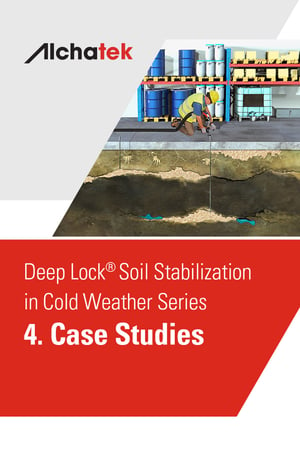 This post features three case studies that highlight the versatility and effectiveness of the Deep Lock® process across a variety of applications.
This post features three case studies that highlight the versatility and effectiveness of the Deep Lock® process across a variety of applications.
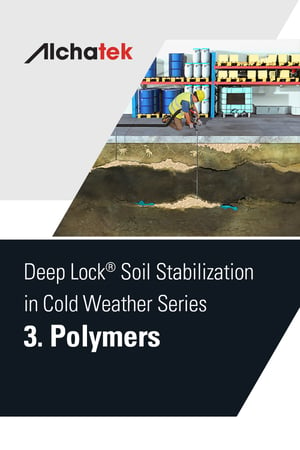 In the world of soil stabilization and concrete leveling, the choice of materials is as important as the technique used. Alchatek's Deep Lock® process utilizes a range of specialized structural polymers, each designed to cater to specific stabilization needs.
In the world of soil stabilization and concrete leveling, the choice of materials is as important as the technique used. Alchatek's Deep Lock® process utilizes a range of specialized structural polymers, each designed to cater to specific stabilization needs.
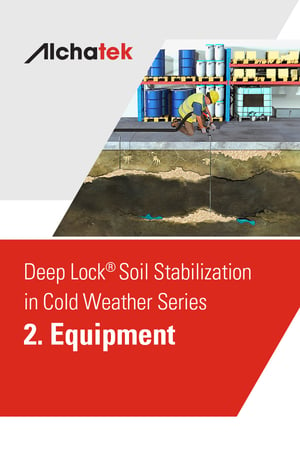 The Deep Lock® process, a robust and effective method for soil stabilization, requires specialized equipment to ensure precision and efficiency. Here's a breakdown of essential equipment for Deep Lock® soil stabilization in cold weather:
The Deep Lock® process, a robust and effective method for soil stabilization, requires specialized equipment to ensure precision and efficiency. Here's a breakdown of essential equipment for Deep Lock® soil stabilization in cold weather:
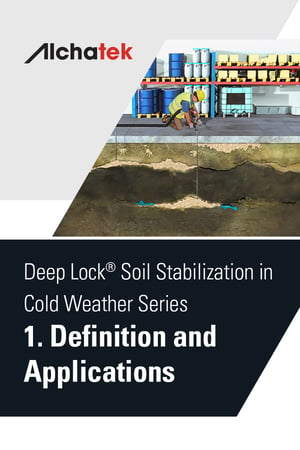 Deep Lock® is a specialized deep soil stabilization process developed by Alchatek. It involves injecting a structural polymer deep into the soil, where it expands and solidifies. This process enhances the stability and strength of the soil, making it an effective solution for various geotechnical challenges. One key feature of Deep Lock® is its ability to stabilize soil below the freeze/thaw line, making it particularly useful in cold weather conditions.
Deep Lock® is a specialized deep soil stabilization process developed by Alchatek. It involves injecting a structural polymer deep into the soil, where it expands and solidifies. This process enhances the stability and strength of the soil, making it an effective solution for various geotechnical challenges. One key feature of Deep Lock® is its ability to stabilize soil below the freeze/thaw line, making it particularly useful in cold weather conditions.